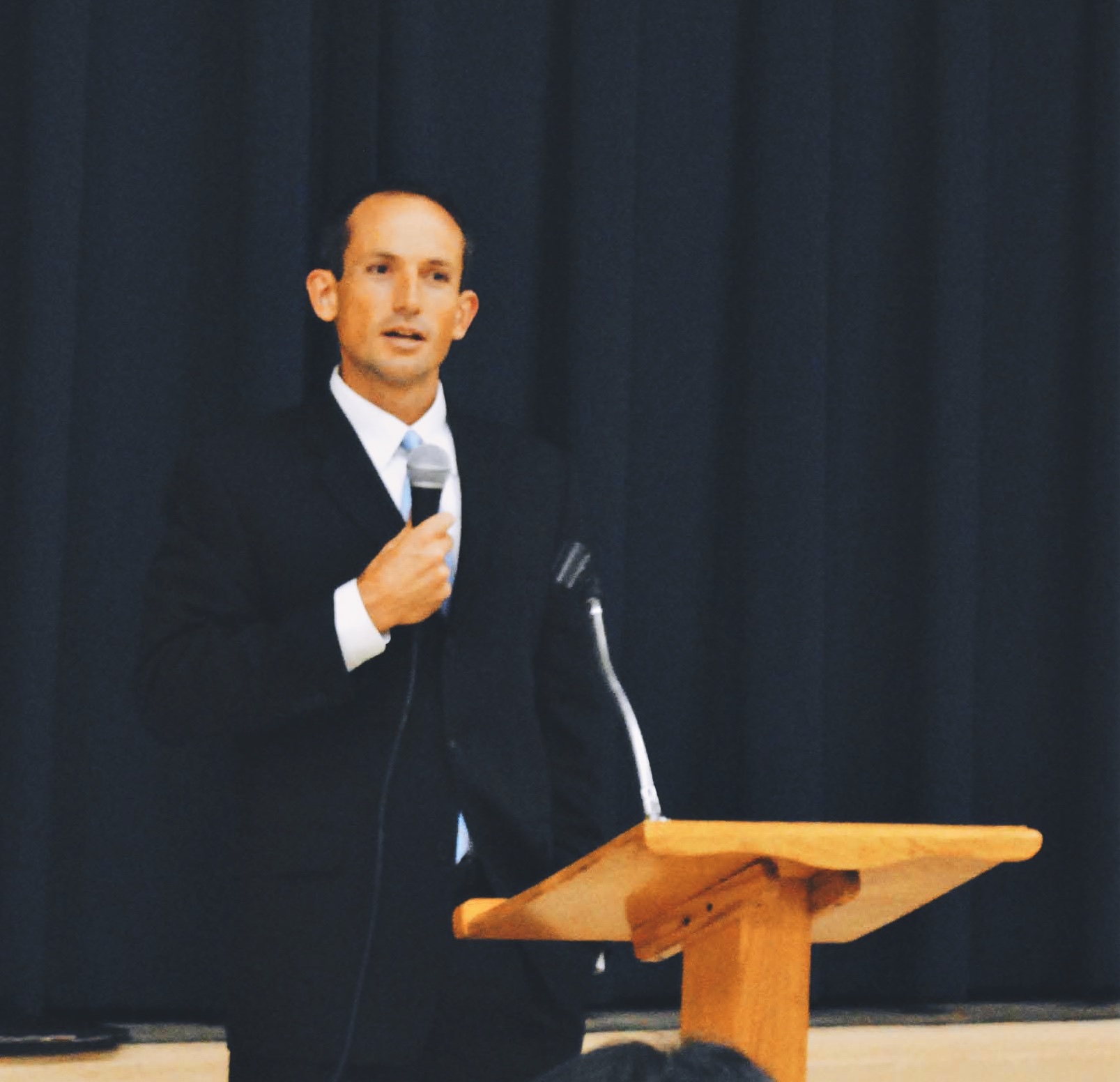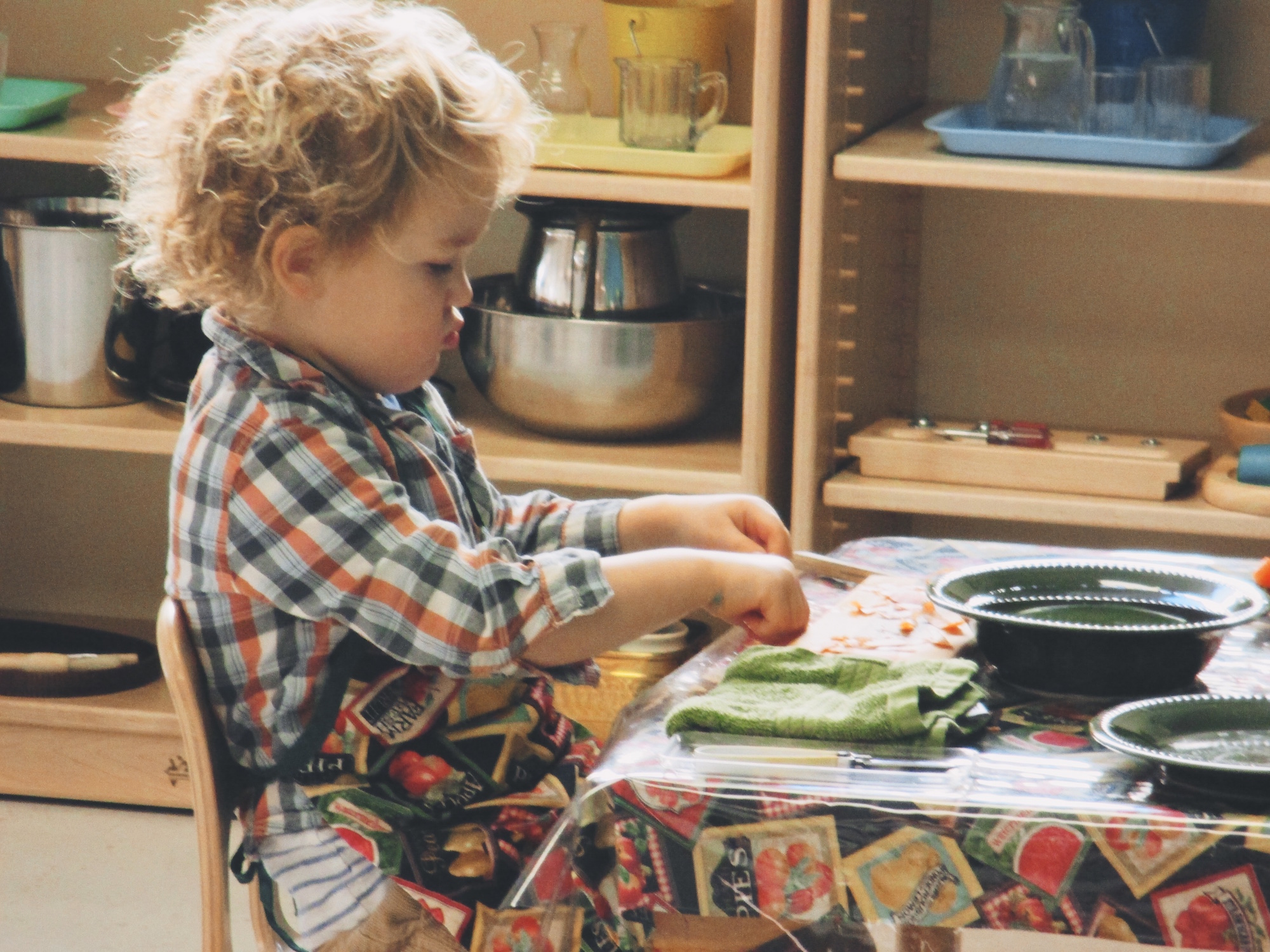Interview with Trevor Eissler
Spotlights
Congratulations on the recent success of Montessori Madness! A Parent to Parent Argument for Montessori Education. You have managed to breathe fresh air into what is often perceived as the rather insular and self-enclosed world of a Montessori classroom. To what can you attribute this triumph?
Luck.
It all goes back to the lucky moment my wife and I heard, in an off-hand comment, whether we had looked at the local Montessori school for our children. It was lucky that we were already deeply into considering an alternative form of education (homeschooling) at the time, and our children were at the perfect age for transitioning into Montessori from their three-day-a-week daycare. After we fell in love with Montessori, it angered me that it was based on luck that we were there. This shouldn’t be something that happens by chance! It should be more algorithmic! There should be a manual for this stuff: when your child reaches age three, x, y, and z are the options available. It made me mad both that more people don’t know about Montessori, and that if not for that offhand remark, we might never know about it either!
As a parent, and as a self-proclaimed “apostle for Montessori”, was there a specific instance in which the text of “Montessori Madness” just unfurled? We are interested to hear, if there was a precise moment in which you just decided that Montessori needed to be made more accessible, told from the perspective of a parent.
Yes and no. My first time observing a Montessori class was a “road to Damascus” moment. I knew pretty soon thereafter that I needed to do something to get the word out. But I had no delusions of grandeur. Getting the word out consisted of talking about Montessori to family and coworkers. The more I talked to them and realized the extent of the ignorance on this subject (my own included), plans for writing opinion pieces, letters to the editor, etc., developed. Then I thought it might be fun to explain it all to myself and my family in more of a book form. And it wasn’t until getting into the book that the possibility of actually publishing it became a reality. Prior to this, the longest piece I’d ever written was a twenty-page (actually nineteen and a half got ya credit) double-spaced term paper in college.
Your beautiful inscription to your children, “The sky is the limit. Or is it?”, conveys that Montessori schools don’t teach impossibility, but rather, allow children to discover their own possibilities. What was once impossible often becomes possible and just the same, what was once possible can become impossible. How would you explain this paradoxical affirmation that Montessori schools impart to their students?
I think it can be explained easily by the orientation of the teacher’s chair. In a traditional school, the teacher sits facing the children. She speaks and imparts knowledge and the children must concentrate on memorizing the words coming out of her mouth. In Montessori, the “teacher’s chair” so to speak, is oriented beside the student. They are both working together on a problem in front of them. The teacher’s task is not to teach the child the answers, but to support the interaction between the child and the problem. I often use a Richard Benson quote, “The problem with telling someone something is that you prevent them from knowing it.” There are so many things to be learned in the process of, say, learning about the sky. What a pity to tell a child that the air is 78% nitrogen, 21% oxygen, and, when he writes that correctly on a test, leave it at that. When learning is open-ended, all sorts of interesting and surprising things can be discovered.
The first line of your book, “I pooped in my pants in third grade.”, while humorous and unassuming, captures a very serious and important point. Montessori schools foster independence. They guide children to understand responsibility, helping children to help themselves. They don’t teach children how to remember, they teach children how to think for themselves. Apart from reading your book, how can we better help parents to understand the revolution Montessori enacts in education?
They must sit in the classroom for an observation. There is no substitute for this.
Whilst Montessori is an elite form of education, it should not just be for the elite. How can we increase awareness of the importance of early childhood education and expose our communities to the forces of a Montessori education? How can we make Montessori more accessible, especially for those who are interested and committed? What are your suggestions for demanding more public Montessori schools?
It is a multi-faceted problem. My little piece of the puzzle is the attempt to increase demand for Montessori by offering this book as a tool for parents to share with their families, and neighbors, and coworkers. I have no expertise whatsoever in starting a school or in working with lawmakers to facilitate the process. It would be an honor to help, through the book, inspire those folks who are active in those fields and who can do great things with that expertise. As far as “elite education” I think it must always be remembered that Maria Montessori came up with this stuff while working with special-needs children and started her first school in a slum.
One of our favorite Montessori quotes is, “The most important period of life is not the age of university studies, but the first one, the period birth to age six.” In this country, and throughout the world, it is widely assumed that university studies are the most important period of educational development but cognitive scientists continually stress and emphasize early childhood education as the most highly formative. So, how do we reverse this misconception?
I don’t know (you can print that, too).
What is the single greatest insight you gleaned from Montessori? Why do you think she is so under appreciated as a philosopher, as an educator? In a certain sense, when you proclaim that you “want to pull the Montessori philosophy of education down into the dirt where it belongs”, you are following the path of Maria Montessori. Can you explain this tendency?
The philosophy is so natural. So basic. So prehistoric almost. I think I’ve slapped my forehead so often learning about Montessori philosophy that I hope I don’t start to get the sloped forehead of some of our ancestors. It’s simply how humans learn best. The greatest insight I gleaned from Montessori was confidence. There is a tremendous confidence that permeates the classroom. And it’s so shocking to those of us from traditional schools who experienced the exact opposite in our classrooms. In those schools there was no confidence in the students. It was assumed we were going to screw up and fail and be behavior problems unless the teachers heroically stopped us. To feel that confidence in the students radiate in the classroom environment is beautiful, and then when I witnessed the result of that confidence (well-chosen work, concentration, helpfulness, surprising discoveries), it really brought home to me the power of the method.
As you so elegantly describe it in “Montessori Madness”, initially one of the most uncomfortable roles to observe, and appreciate, in the Montessori classroom is that of the directress or guide. Everything we have ever come to understand about how a “teacher” is supposed to “teach”, is upturned, and radically so, in a Montessori environment. Montessori famously stated that she wanted to recruit “directresses” who had no formal training in educational studies because such individuals would be able to resist the temptation to help the children more than they actually need. “Never help a child with a task at which he feels he can succeed.” How do we help create, not only an entirely new species of teachers, but also transform the conception of what exactly it means to be an educator?
Isn’t that fascinating? How do we train a teacher to know how to get out of the way, while now we are training traditional teachers how to inject themselves into every aspect of the learning process? Recently, I heard a quote reversing the common saying, “Don’t just stand there, do something!” into a more Montessori-appropriate, “Don’t just do something, stand there!” As I said above, I think the most powerful way to transform someone’s conception of what it means to be an educator is to have them sit in a Montessori classroom for an observation. There is simply no substitute for this. We must work on how to get more people into that observation chair. That thing should always have an adult in it!
If there is one simple formulae that encapsulates Montessori it is this: Montessori concentrates on the concrete as opposed to the abstract. This applies to language, no less than mathematics, but it also applies to a sense of community. Of course, in traditional schools, it is the exact opposite movement of thought that is endorsed and promoted. Often, the shifts Montessori enacts are so subtle as to be missed. How can we generate a positive and productive use of this madness, as articulated in your book?
Positive and productive is wonderful. However, we must not be afraid to point out the negatives of traditional education. The weight of tradition plays such a strong part in a parent’s selection of a school that we must find ways to counteract this-the goal being not to teach the parent everything about Montessori, but merely to talk them into taking an observation of a class. Make it easy for parents to stick their toes in the water without asking for a huge commitment up front. Let them have an opportunity to experience a revelation while watching a class. Let them figure out the subtleties of the method on their own after they have that emotional experience and feel that emotional connection to the environment.
We understand that many of these questions may appear to be redundant, but hopefully each, in its own way, can help us address the crisis in education that we face, in a vital and timely fashion. We want to take this opportunity to thank you, not only for your participation in this interview, but also for your willingness to engage in conversation. To speak up and write “Montessori Madness”, and to hopefully, one day, help reverse many of these educational misconceptions.
Thank you!
Hope you enjoyed this interview with Trevor Eissler.
Written by:
Baan Dek



